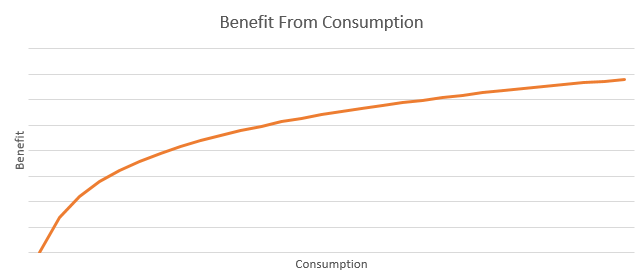Definition
Scarcity refers to the fact that resources are finite – people and organizations need to allocate their finite resources between their infinite wants.
Each year, the world produces more goods and services, along with better technologies and processes that can increase output farther. Even with this growth, there will always be scarcity, because there will always be the question of the best way to allocate the resources we have available.
Allocating Resources
Each person and organization needs to allocate their scarce resources among everything they want and need. Resources are also allocated between consumption and investment – how much you choose to use today against how much you save for the future (and use to improve how much you can produce tomorrow).
People
Each person works to earn an income, their income is their primary resource they need to allocate, but they also have a limited amount of time. This means that every year, you have 52 weeks of time and however much income you earn, which you can allocate to the best way you see fit.
Allocating Income
 You can use more of your income for consumption and less for saving, but this might mean that you will have less consumption later when you lose your job or retire. You can save and invest more of your income, but that means you will have less available to consume today.
You can use more of your income for consumption and less for saving, but this might mean that you will have less consumption later when you lose your job or retire. You can save and invest more of your income, but that means you will have less available to consume today.
Generally speaking, as a person’s income goes up, the higher percentage of it is used for saving and investment, since each additional dollar you spend on consumption is just a little bit less effective than the last.

This is why it doesn’t seem like people who make $2 million a year seem that much better off than people who make $1 million – once consumption levels get up to a certain level, spending much more will only make you a little bit better off.
Allocating Time
You have a similar problem with what you will do with your time. Most people try to work for 8 hours a day, sleep about 7 hours, and use the remaining time for leisure (and preparing for work or spending time with family). Each person, in theory, has a choice to work more or fewer hours (getting an extra part-time job on the weekends, for example), or they can choose to use some of their leisure time to build new skills by going to school or learning a trade.
This balance between building skills, relaxing, raising a family, and working is the second fundamental problem of scarcity that an individual faces. Regardless of how much money they earn, there will always be limited time.
Businesses
Businesses have their own scarcity problems. One of the classic conflicts is investment between Marketing and Research. Companies can invest much more in building the best possible products, but without sufficient marketing the general public might not even know they exist. On the other hand, they can invest heavily in marketing their existing products, but this comes at a cost of less product development and new technology being developed.
Governments
Governments are also faced with serious allocation problems. Tax revenue can be used on nearly infinite numbers of different projects and programs, from helping the poor to funding national defense.
There is also the same fundamental problem of individuals – how much should governments invest in advancing research and technology to help the economy grow, versus programs specifically to help the poor?
In theory, these questions are answered (at least in part) by voters by electing leaders with different platforms, but the “nuts and bolts” of each program, and the specific balance of resource allocation, is still a problem that governments face each day.
Pop Quiz
[qsm quiz=45]
